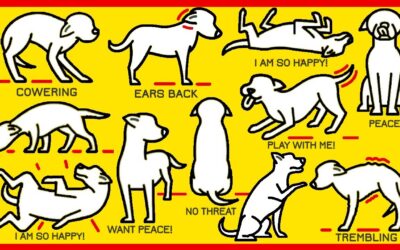How to Deal with Separation – Anxiety in Dogs
How to Deal with Separation – Anxiety in Dogs
Anxiety in dogs and sudden changes in dog’s behavior are depressing for their owner. Dogs face separation anxiety when they are emotionally and mentally attached to their owners. Anxiety in dogs can be a cause of changes in the ownership, shelter house, genetics, routine and lifestyle, or loss of the dog’s close family members.
Hints of your dog suffering from separation anxiety:
- They will follow the owner everywhere and cannot leave them alone; dogs always want to be around their owner.
- Dogs may also face some physical changes when suffering from anxiety such as sweaty paws, dilated pupils, drooling or panting.
- They also bark repetitively when they do not see their owner around.
- Separation anxiety can also be detected by the changes in your dog’s behavior. Pay attention to their destructive chewing, potty accidents and digging behavior.
- Skipping the meals or eating less than normal can also be a sign of a dog’s separation anxiety.
- Aggression, increased heart rate, depression, vocalization, attention-seeking behavior, frequently making sounds and high-pitched whines can also be a sign that your dog is suffering from anxiety.
- Puppies who have not crossed five years of age may not have separation anxiety. Certain changes may be helpful for them provided they are not left alone.
It does not mean that every dog who has these symptoms has separation anxiety; some dogs do it habitually. If you find any of these habits in your dog, you need to consult the veterinarian.
Assumptions about dog’s separation anxiety:
There are a lot of myths regarding the cause of separation anxiety in dogs, which may or may not be true:
- Only shelter dogs face separation anxiety: However, its not true and genetics also play a part.
- There is no treatment for separation anxiety: It’s completely wrong and the problem is curable just like any other health and psychological issue.
- Leave your clothes that smell like you so that your dog will not face separation anxiety: However, this does not work; your dog can easily judge your absence therefore no need to bluff.
- Getting another dog will help: However, loneliness and anxiety are two different things and getting another pet in your home might help your dog to not feel lonely, but it does not work for your dog’s anxiety.
Help your dog to overcome separation anxiety:
It will need special efforts to take care of your dog and make them feel secure. Some useful tips to help your dog with separation anxiety are shared below:
- Understand your dog’s Emotions: Don’t get frustrated and try to understand your dog’s emotions. Tina Flores, a Certified Separation Anxiety Trainer explained it as the anxiety of separation is compared to human panic attacks. “Let’s suppose a human has a huge fear of heights and when he/she has to face huge heights they will get a panic attack, their hands and feet start getting cold and they feel stressed out. Dogs also feel the same when they suffer from separation anxiety. Now it’s better to understand their condition when we compare them to a human.”
- Keep your dog Active: Activity is necessary to give your dog a happy and healthy life. Exercising and daily activity routine might not cure your dog’s separation anxiety but it will make it more energetic and ensure better sleep quality.
- Separation Anxiety and Interactive Toys: Interactive toys like tricky treat balls help; while playing with them the dog maintains a distance from their owner, which helps them overcome separation anxiety.
- Medications are important: If your dog is facing severe anxiety disorders you have to give them medications. You need to consult a vet that can prescribe the medicine according to your dog’s age and health conditions.
- Do not Punish Your Dog in this situation: Do not punish your dog when it is going through anxiety because it is cruel to punish it for its condition. Yes, it is frustrating when your dog does not leave you alone or when you get back home and find unnecessary nervous reactions from your dog. According to the research of Voith and Borchelt; “Punishment can make dogs more dependent on their owner”
- Dog dependency on you: Dog dependency on owners will create hurdles for both. At first, start with 15 to 20 minutes of dog’s alone time whenever you are at home or in a different room, then increase the separation time bit by bit not immediately.
- Changes in owner’s routine: Try to be less expressive than before; long goodbyes might make your dog more anxious on your leaving, therefore try to act as normal and calm as possible. Also, make changes in your daily routine _ for instance, if you go out in the morning after taking a glass of milk, switch it to something else so your dog doesn’t start feeling anxious knowing that you are about to leave.
- Dog’s behavior and physical health: Being a dog owner, you are responsible for your dog’s medical health. If you find any unnecessary change in your dog’s behavior and physical health, try to consult the vet and detect the disease because delays can aggravate the condition. The sooner you can detect the level of illness, the easier it will be to cure it.
- Family members involvement: Getting help from your family members can also be effective in handling your dog’s separation anxiety. When it spends time with other family members, it would not depend upon you that much.
- Monitor your dog when you are outside: You can monitor your dog through a camera and talk to them even while you are not around. If you notice unnecessary running and barking you can automatically select the voice note on these actions to calm down your dog.
In summary, dog anxiety is disturbing but treatable; you just have to be patient, consistent and available for your furry friend every time they need you. If it does not work, you may always consult a vet or a pet behaviorist to treat them appropriately.









Leave a Reply